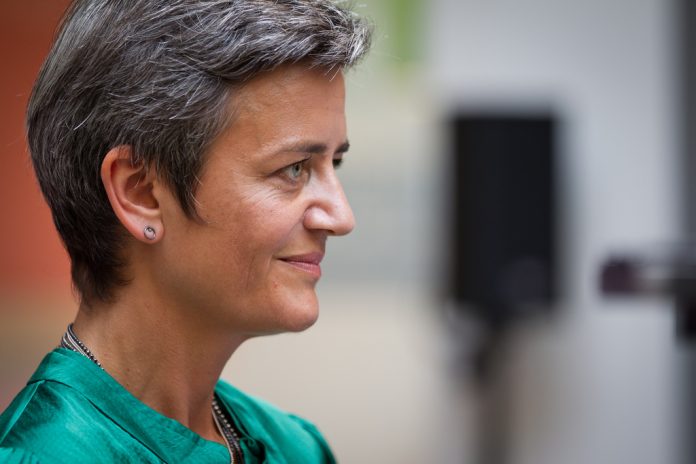The European Commission has opened an in-depth investigation to assess whether Danish and Swedish public support for the Øresund fixed rail-road link is in line with EU State aid rules. This follows the EU General Court’s annulment of a previous Commission decision approving the support.
“The Øresundlink has been instrumental in the cross-border integration of two dynamic regions and brought significant benefits to citizens and businesses on both shores and beyond. The Commission already approved State aid for the building and operating of the link in 2014 but the Court annulled this decision, finding that the Commission should have opened an in-depth investigation. Today’s opening of such an investigation is an invitation for all stakeholders to provide their input, which will allow the Commission to adopt a new, well-informed final decision,” said Commissioner in charge of competition policy Margrethe Vestager.
The Øresund fixed rail-road linkconsists in a toll-funded 16 kilometres long bridge, an artificial island and a tunnel for road and railway traffic from the Swedish coast to the Danish island of Amager. It is the longest combined road and rail bridge in Europe and connects Copenhagen to Malmö. The link was built between 1995 and 2000 and has been in operation since June 2000.
The Øresundsbro Konsortiet, a consortium formed by the Danish and Swedish states, owns and operates the Øresund fixed rail-road link on the basis of an intergovernmental agreement. Under this agreement, Denmark and Sweden guarantee the loans that the consortium secured in order to finance the link. Denmark also foresaw a special tax treatment for the consortium as regards depreciation of assets and fiscal loss carry forward.
In 2013, Scandlines Øresund I/S (“Scandlines”) filed a complaint with the Commission alleging that the State guarantees granted by Denmark and Sweden to the Øresundsbro consortium, as well as certain tax advantages granted by Denmark, were incompatible with EU State aid rules.
On 15 October 2014, the Commission concluded that the Danish and Swedish support measures were in line with EU State aid rules. In particular, the Commission found that the public guarantees on the consortium’s loans and the tax measures implemented by Denmark constituted State aid, as they gave a selective advantage to the consortium, which operates the link on a commercial basis. However, the Commission found that the measures were necessary and proportionate for this project of common European interest to be completed. Therefore, the Commission concluded that the measures were compatible with EU State aid rules.
On 19 September 2018, following an appeal of the Commission’s 2014 decision by Scandlines, the General Court partially annulled the Commission’s decision on procedural grounds (Case T-68/15).While the General Court did not rule directly on the compatibility of the measures with EU State aid rules, it found that the Commission should have opened a formal investigation to assess the case in-depth before adopting its State aid decision.
The Commission investigation
To comply with the General Court’s September 2018 judgment, the Commission has today opened an in-depth investigation under EU State aid rules into the guarantees on the consortium’s loans by Denmark and Sweden and the tax support measures implemented by Denmark.
Although these types of measures can be considered as aiming to promote an important project of common European interest, the Commission will focus in particular on the following elements in its investigation, as required by the Court:
(i) the nature of the measures and whether they constitute individual aid or aid schemes, existing or new aid;
(ii) the compatibility of the measures with EU State aid rules; and
(iii) the precise period during which the consortium, Sweden and Denmark could invoke legitimate expectations barring recovery, should the measures ultimately be found to constitute incompatible State aid.
The opening of the in-depth investigation gives all interested parties the opportunity to submit their comments. It does not prejudge the outcome of the investigation.
Public support and State aid
Traditionally, public support for the construction and operation of infrastructure projects was considered not to involve State aid. However, there have been important market developments, which led to increasingly commercial use of such infrastructures. The EU Court of Justice confirmed that public funding of infrastructure investment projects is subject to EU State aid rules when the infrastructure is intended to be commercially exploited (Joined Cases T-443/08 and T-455/08 Leipzig Halle). Therefore, public funding for projects like the Øresund link must be assessed under EU State aid rules.
EU State aid rules allow Member States to grant support for such infrastructure investments to stimulate economic growth, subject to certain conditions – this includes in particular the need to avoid overcompensation and to ensure that there is a level playing field in the market.
The non-confidential version of the decision will be made available under the case numbers SA. 52162 and 52617 in the State Aid Register on the competition website once any confidentiality issues have been resolved. New publications of state aid decisions on the internet and in the Official Journal are listed in the State Aid Weekly e-News.

